Supernatural University: Tragedies, Bloodlines, Legacies – The Evolution of the Family Business
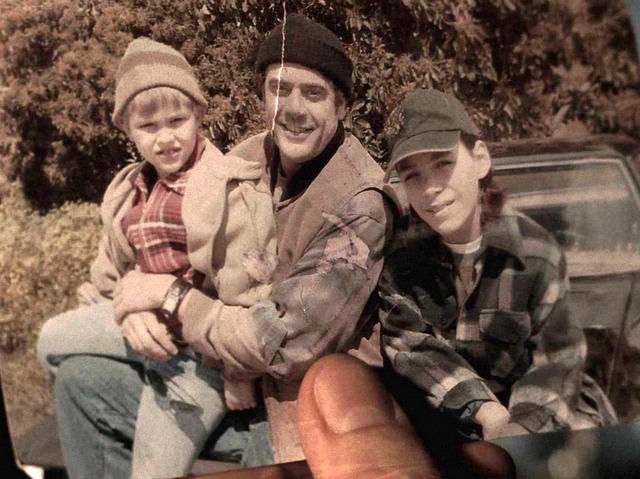
“Saving people, hunting things: the family business.”
That’s been the tagline of Supernatural from the very beginning, memorably given voice by Dean way back in the second episode, Wendigo, and repeated multiple times every season since. But it’s never been a static concept; every part of that phrase has undergone evolution as the seasons progressed. In this discussion, I look at how the show has changed our understanding of family and the family business from its original presentation of hunting, hunters, the Winchesters, and saving people to where we stand at the beginning of season nine. Welcome to a multidiscliplinary Supernatural University analytical session!
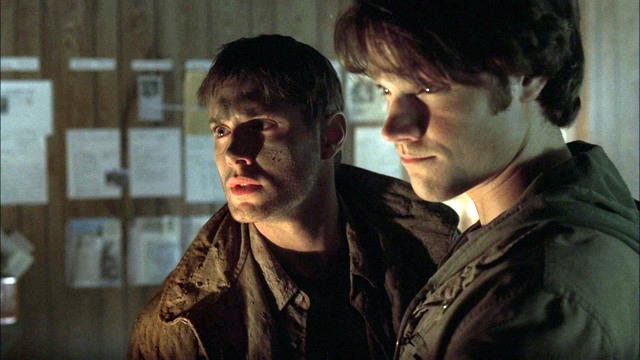
I have to start this discussion by talking about retcons, because they are the way much of the show’s world was built.
Retroactive continuity (aka “retcon”) – the device of adding information to the backstory of a fictional character or world through revelations in a new story that alter the interpretation of events previously related, even if they preserve the facts of those prior events – is used most often in fandom as a perjorative term. Sloppy retcons that dismiss, ignore or even contradict history and character as presented in a show without providing a solid basis for such difference deserve that scorn, but retcons done well can also enrich the story.
The simple truth is, retcons are pretty much inevitable in any television show that runs for more than a couple of seasons, the same way they appear in book series that span years of creation, and for the same reason. It’s impossible at the outset of any long-running, truly complex story for an author (or group of authors) to fully create both the past and the future of the complete universe the story inhabits. As a story develops, concepts and ideas – both brilliant and bad – that weren’t remotely in the writers’ minds in the beginning are going to strike like lightning. Sometimes they crystallize unconscious connections that were always present but not recognized. Sometimes they reflect growth in the writers’ own ability to handle psychological, philosophical, or political complexity, providing the opportunity to add layers to characters and fictional world events that the writers weren’t originally equipped to perceive. Sometimes, they’re positively inspired. And sometimes they’re just downright awful, done purely for convenience, surprise, or to get the writers out of a corner they hadn’t realized they were painting themselves into.
Many of the developments I’m going to discuss here are retcons, and I don’t mean that in a bad way. Some made more sense to me than others; some worked for me better than others. All of them together painted the canvas we now enjoy.
In The Beginning Was The Word
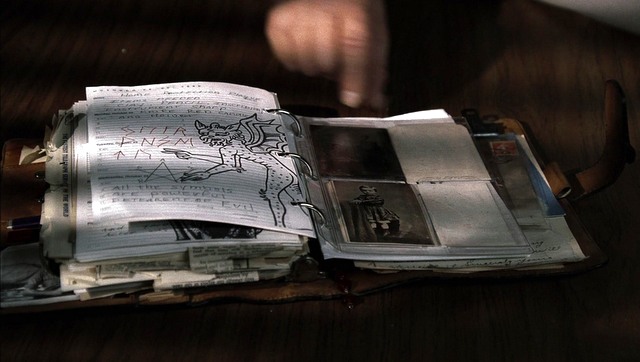
Our introduction to hunters and hunting in season one established the idea that most – like John Winchester – came to the life through a personal tragedy involving supernatural malevolence. Hunters were presented as predominantly solitary beings comprising a loose network of like minds to share information and offer training and support to each other while concealing their life as hunters from everyone not already in the know. Searching for John, the brothers called on the few others they knew in their father’s network, including Pastor Jim Murphy and Caleb, in search of information. They also discovered Missouri Moseley and Daniel Elkins, contacts John had known but never shared with them, and turned at the end of the season to an old friend new to the story and to us, Bobby Singer. Everything we understood from that season suggested hunters were few and widely scattered, and the brothers’ situation of growing up in the life from early childhood was almost, if not absolutely, unique. The brothers’ only legacy from their father was their hunter training and the journal containing all the information he’d collected on monsters.
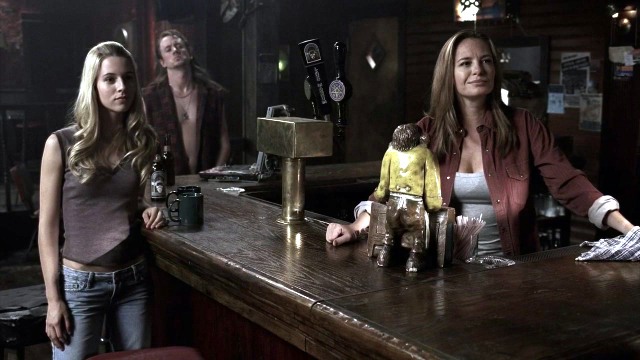
Season two brought our first hunter retcon with the creation of Ellen and Jo Harvelle and their Roadhouse in Everybody Loves A Clown. Right along with Sam and Dean, we became aware of a much larger and more connected network of hunters than season one had ever suggested existed, and learned things about their father’s hunter history they’d never known. It kept basic consistency with season one ideas by still casting hunters in the same overall mold as John: blue collar types who became hunters through personal loss. It worked in some ways because it made sense that John would have protected his sons when they were very young by isolating them from all but those few hunters he considered absolutely trustworthy. John also wouldn’t have shared with them things that made him ashamed, such as the death of Bill Harvelle, and denying his sons knowledge of the roadhouse even after they were grown was the only way he could keep his personal history with the Harvelles safely buried. Introducing the brothers to that larger hunter community after John’s death expanded the brothers’ world by connecting them with others to replace contacts killed in season one, and also served to shine a new light on John even as the brothers struggled to accept his death and figure out their own newly parentless adult status. It was problematic because the continuing “paranoid loner in flannel” hunter stereotype made Harvelle’s a fairly ridiculous clubhouse and turned the common hunter persona into a pretty limited caricature.
Season two also complicated the “saving people, hunting things” concept by introducing in Bloodlust monsters worthy of being saved rather than hunted. Lenore and her vampire family were more human than hunter Gordon; technically human Gordon – like The Benders in season one – turned out to be the monster.
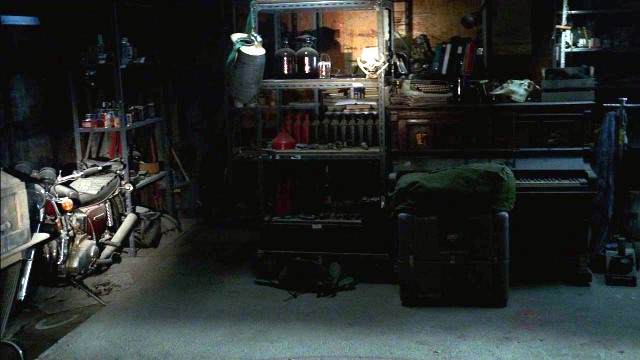
The season two view of the hunter universe continued throughout season three. On the “family” side of the ledger, however, Dream A Little Dream Of Me powerfully illustrated Dean’s changing view of his father, and Bobby’s iconic observation in No Rest For The Wicked that “Family don’t end with blood, boy!” made it very clear that the show’s concept of family extended beyond the normal list of relatives. The secret cache in Bad Day At Black Rock added even more things the brothers had never known to John’s history, hitting both the “family” and “business” notes.
And then came season four, and the universe changed.
She’s Chosen. It’s In Her Blood, As It Was In Yours
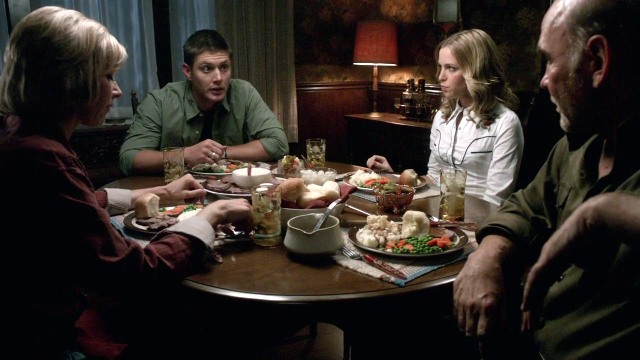
Season four began the biggest changes to our understanding of hunters, hunter history, and the legacy inherited by the Winchesters. In The Beginning introduced us to the Campbells, a family living a surface-normal existence while carrying on a long-established heritage of hunting that simply assumed children would be raised in the business. Knowledge passed down by ancestors took the place of a direct personal tragedy to start the hunting process. But young Mary Campbell, the latest rising generation, wanted to escape the life and just be normal; to marry her supernaturally innocent, wholesome small-town mechanic and Vietnam vet boyfriend John Winchester and have children who would never know about monsters, ghosts, and demons, much less hunt them. And it was Mary’s past that haunted the brothers’ present; her deal with the yellow-eyed demon led to Sam being fed demon blood and Mary herself dying in fire on the ceiling to kick-start John into becoming a hunter without the benefit of the Campbell knowledge.
It’s not clear how much of that was pre-planned and how much qualified as a retcon. Kripke admitted that when he first had the image of a woman burning on the ceiling and used it to launch the pilot, he didn’t know why she was up there. I’d love to ask him someday to lay out the timeline of the show’s development, noting when certain ideas got integrated into the show, and particularly to say when Mary being a hunter from a family of hunters entered the picture, and when he decided that her deal would result in Sam’s curse and the Winchesters’ fate!
Season four also brought us angels for the very first time. I’ve talked a lot about that before so I’m not going to get into it here, except for noting how it relates to this whole family discussion.
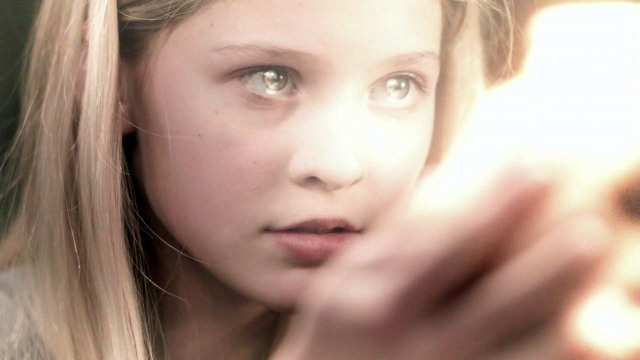
From Castiel’s first appearance in Lazarus Rising, we learned that angels needed to occupy willing human vessels in order to communicate with most people, because very few humans – ones such as Pamela Barnes, who could hear Castiel trying to warn her not to look at him – could understand angels in their normal celestial forms. The Rapture further presented us with the concept that angels couldn’t simply possess any willing body, but needed to find humans with the right genetic propensity to be able to become vessels. Castiel voiced the idea that only humans born of certain bloodlines were suitable vessels for angels. I had a few practical logic problems with that, starting with the point that if the angel/human interface had always been designed that way from the earliest days of humankind, human breeding over thousands of generations would have diffused that trait across pretty much the entire human population by this time even if it had been crafted into only a relative few humans – say, one potential human vessel for each angel – in the beginning. Still, I hand-waved that one away pretty easily.
Season four also played with the “saving people” part of the equation. One incentive for Sam to use his powers to wring unwilling demons out of their human hosts was that the host could often survive, if his or her body hadn’t been seriously injured during the possession. To kill a demon with Ruby’s dagger, you needed to kill the host; to use an exorcism ritual, you needed time to get through the prayer/spell, and the demon’s struggles could overstress and kill the host. That provided Sam with both temptation and justification for using something evil to bring about a good end.
To me, the biggest thing season four brought us in family terms was the concept of bloodlines for both select hunters and angel vessels. That was a new twist: that you could be born to be a hunter or a vessel, and have that be something you inherited.
You’re The Vessel
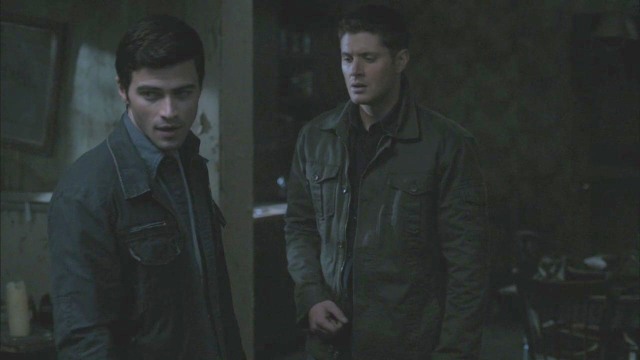
Season five took that whole “bloodline” idea a step further by positing that the ability to host angels wasn’t a general characteristic, but was coded to match certain individual human bloodlines with specific angels, at least when it came to angels of massive inherent power such as Michael, Lucifer, and Raphael. Dean was told repeatedly that he was Michael’s vessel, and although he learned that both his father John and his half-brother Adam carried the same trait and could also be used (which, by the way, suggested Sam genetically could have been a vessel for Michael, too, and Dean could have been one for Lucifer), they didn’t match the “older brother/younger brother” prophetic circumstances that made Dean and Sam ideal to mirror and embody the Michael/Lucifer conflict. Sam was labeled the perfect vessel for Lucifer seemingly because he both had the right high-power-level angelic-vessel bloodline and had been prepared in infancy by his developmental dose of demon blood to be able physically to tolerate Lucifer’s corrupted power as poor Nick – who evidently had the bloodline but not the early preparation – couldn’t. We were told in My Bloody Valentine that the angels had deliberately engineered the match between John and Mary to bring about in Sam and Dean the perfect vessels for the apocalypse.
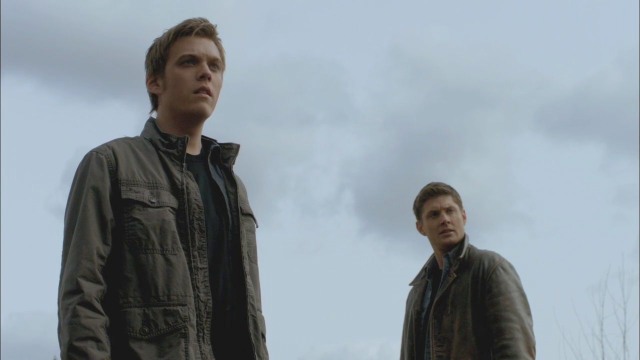
This was definitely a retcon because we know Kripke hadn’t intended to have angels appear at all, and said in 2008 that he always knew we’d never see Lucifer. Look at my long angel meta for the full discussion of this point, including all the many ways it worked to simply expand on everything that had gone before and give the story more layers.
Here, however, I’m going to share why I wish Kripke hadn’t gone this way. With the whole “bloodline engineered by angels” aspect of the Winchesters’ story, we lost something the show had from the beginning: the sense that the Winchesters were ordinary people like any of us catapulted randomly into extraordinary circumstances and responding with heroism. The bloodline thing made the Winchesters “Chosen Ones” set apart from all of us. The Campbells being historic hunters hadn’t done that precisely because Sam and Dean grew up outside the clan and ignorant of their heritage, with no genetic or other predisposition to become hunters.
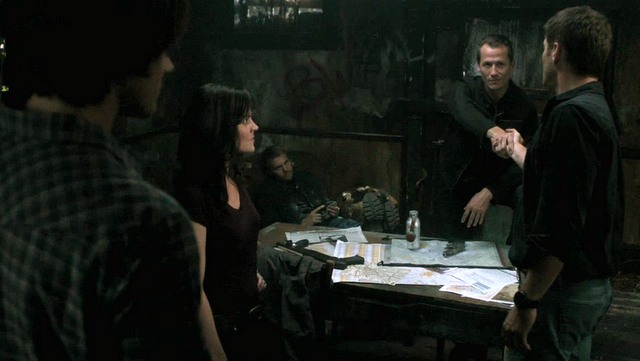
Season six, while ostensibly expanding on the Campbell family history, actually diminished it to my mind by departing from any sense of the Campbells as still being a true family intent on preserving and extending its heritage by raising more generations in the family business. Instead, the uniformly young cousins were largely presented as generically stereotypical hunters who shared a last name. In Two And A Half Men we were told Christian was married and he and his wife wanted children, but that was the only reference made to anything remotely resembling actual family life. Before the season ended, all the Campbells we knew of were dead, leaving only the library the brothers and Bobby raided in Frontierland, with old family journals that also played the role of providing answers in Live Free Or Twihard and Let It Bleed.
Season seven was mostly quiet on the family front, apart from emphasizing through Bobby and Rufus the importance and reality of the families we make, not just the ones we’re born to. Adventures In Babysitting also gave us in Lee and Krissy Chambers a look at another family following the path of John Winchester and his boys, with the brothers encouraging the Chambers to get out of the hunting life to save their family one. With Eliot Ness, Time After Time showed us a hunter who hadn’t come to the business through either personal tragedy or family tradition; instead, he was a law enforcer open-minded enough to accept that vampires were turning people in Cleveland.
You’re Legacies
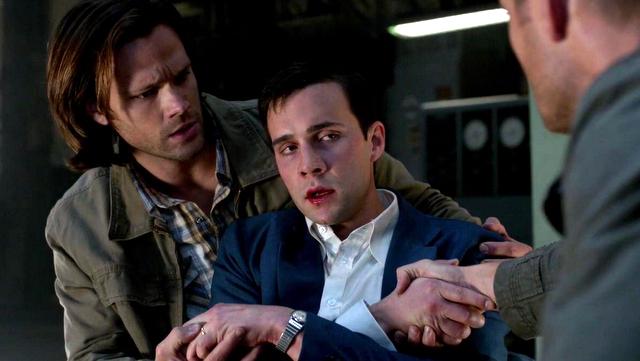
Season eight brought a massive retcon with the introduction of Henry Winchester and the Men of Letters in As Time Goes By. As we’d learned in season four about the brothers’ maternal Campbell family hunting heritage, we were told the Winchester family also had a supernatural background of which the brothers and their father had been unaware. According to Henry, they should all have been raised to become erudite loremasters in the secret society of the Men of Letters, who would have looked down on mere brutish hunters.
I must admit I found this one hard to swallow. While I confess to loving the MOL bunker itself, particularly for the resources it provides to expand the story, the sense of home and belonging it gives to Dean, and the purpose and intellectual satisfaction it gives to Sam, the Winchesters’ brand-spanking-new supernatural family history irritated me no end. Part of it was the same thing I mentioned in connection with the bloodline developments expounded in season five: it distanced the Winchesters from all of us by making them doubly “chosen” rather than being otherwise normal, ordinary people flung into extraordinary circumstances.
The biggest part of my overall dismay, however, was what this revised history did to our understanding of John. The young man we met In The Beginning and again in The Song Remains The Same didn’t seem to have any core of bitter resentment toward his own father, least of all one so strong he would communicate it to his own sons decades later with enough passion that it colored Dean’s attitude toward Henry. That specific part of this retcon felt the most “off” to me precisely because something so integral to the brothers’ past and to their internalization of the meaning of family – a core concept of the entire show – should have come out long before this in the brothers’ many conversations on the topic. Other things, such as knowledge of the Campbells being hunters or the existence of the MOL, were as new to the brothers as they were to us, so we all assimilated them together at the same time. This bit, however, was jarringly dissociative because it severed our assumed knowledge of the Winchester family accumulated during eight years of the show from what the brothers now said they always knew about in the past, and that was a problem.
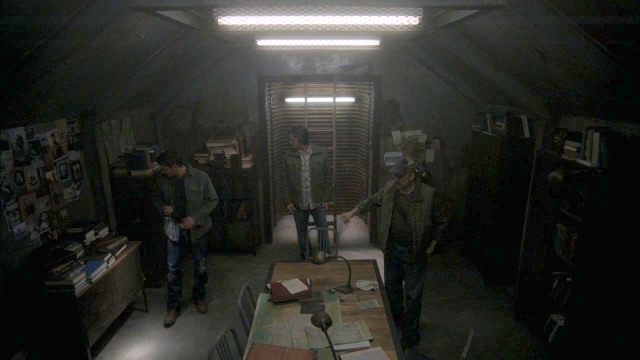
The final major thing tweaking me about the MOL was simply the idea of a secret society powerful, organized, and intelligent enough to have survived for centuries being somehow wiped out in a single night, leaving no trace behind in any of the sources available to the characters we know. That hoary old narrative chestnut is just a practical logic problem for me, though, not one concerning the family business.
Anticipation, It’s Making Me Wait
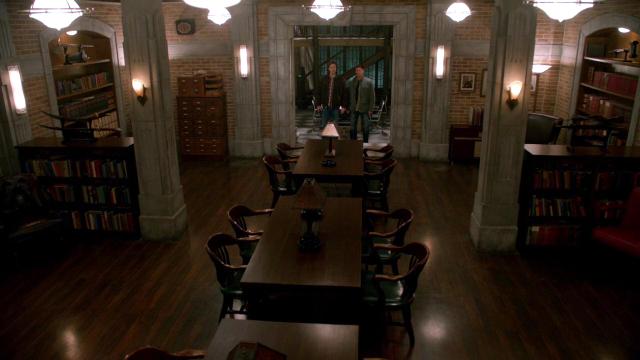
Season nine promises to continue exploring the Winchesters’ MOL legacy and – through the consequences of Sam’s trials, Dean’s decisions, the angels falling, and Castiel being rendered human – the tensions in both the Winchesters’ immediate and extended family. I suspect we’ll also see even more evolution in the family business concerning what it means to save people and hunt things.
But no matter what comes, I know family will always remain at the heart of the show. After all, this all started with another family business that diversified from its origins!
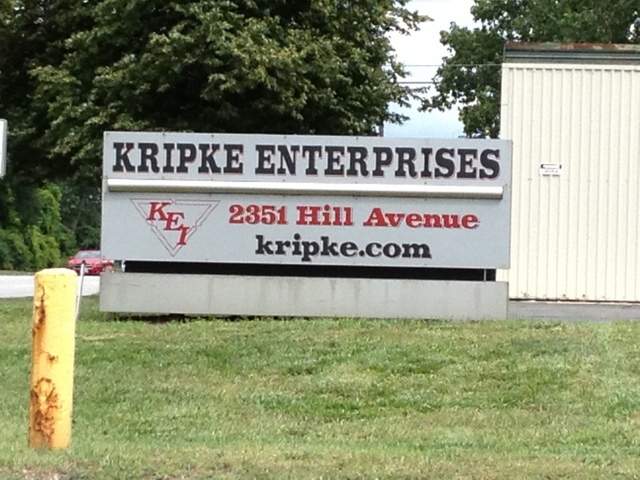



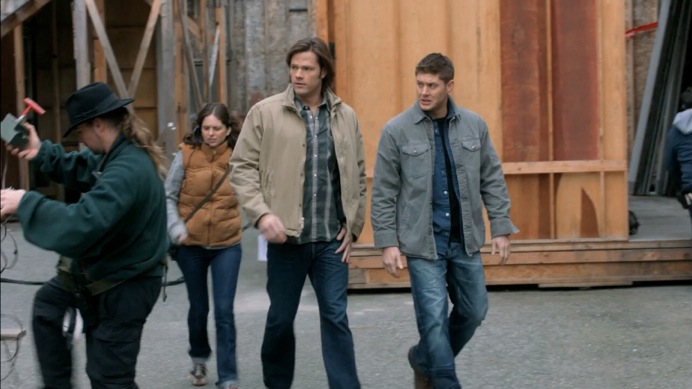
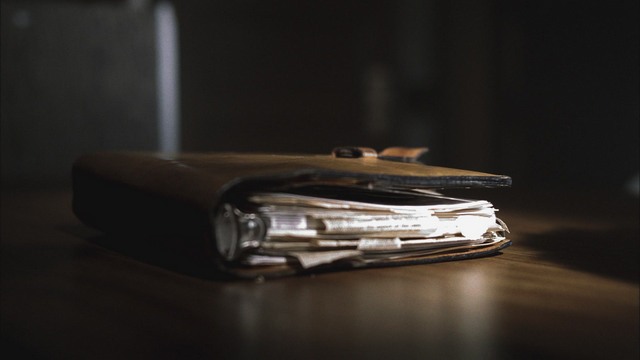
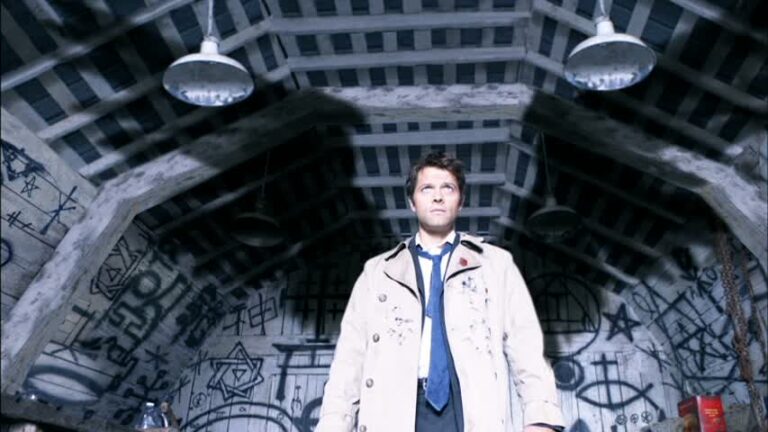
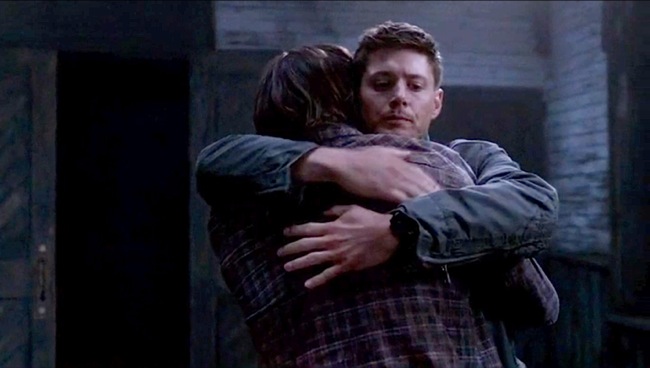
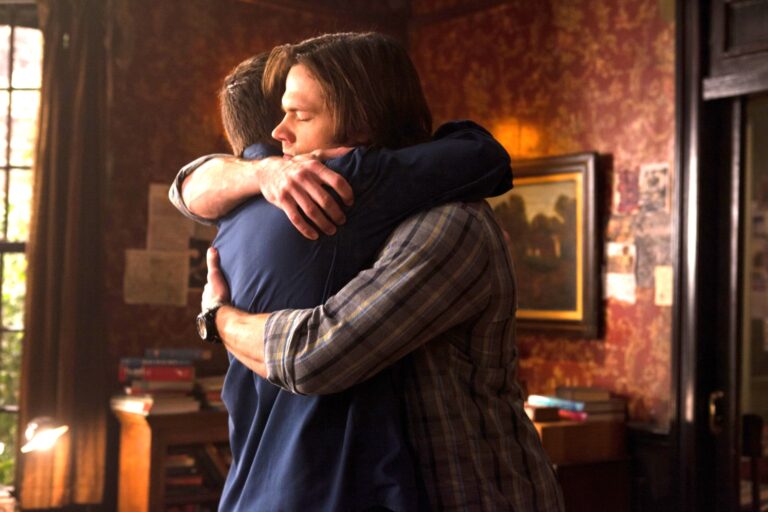
Nice. Thank you for this. It is the family value – family relationship – and of course, family business – that keeps the show working for me.
Thought – with Magic City getting cancelled, does anyone think they may lure JDM back for a story arc? That may allow a way to clean up some of the Henry/John retcon issues.
JC, in S8, was pretty sloppy with the show’s canon and I think it’s a major flaw on his part. In “As Time Goes By” with just a couple of sentences JC could have said something to the effect that John was raised by a loving stepfather that he considered his “dad”. It wouldn’t have changed the basic concept of the episode at all but kept canon intact. This is just one of numerous examples, obviously. JC definitely needs to “up his game” where this is concerned.
Thanks for helping to ease the Supernatural void of summer. But, I have to admit that I saw it as empowering to the everyday person that Sam & Dean had genetic propensities as vessels. If they had been aware of it from an early age, that would set them apart from the rest of us. Perhaps each of us has the chance to be a vessel and we haven’t realized it yet. I love prophets and Gospel writers as everyday Joes- not shiny & perfect. As Castiel says “You should have seen Luke.”
Heh: I realized last night that I’d forgotten to include a major family item from game-changing season four: the brothers’ discovery that John had another youngest son he’d never revealed to them, one he’d tried to protect from the supernatural by keeping him hidden from and ignorant of the dangers he’d felt compelled to teach Dean and Sam to hunt. That was a controversial move on Kripke’s part which altered the past and demonized John in the minds of many fans, something Kripke acknowledged with his [i]Jump The Shark[/i] title. I appreciated John as flawed and complex; I regret Adam being still trapped in the cage with Michael and Lucifer. Family …
[b]Grace[/b], I don’t really see JDM coming back, unless it’s for the series finale someday. The CW doesn’t have the prestige or the pay scale of the big networks or the pricey pay cable channels; JDM’s agents would see a return to [i]Supernatural[/i] as a downgrade and a back-step – and they wouldn’t make as much from him appearing there as they would from almost any other project he might undertake. It’s an agent’s job to make their actor clients’ reputations grow; they’d resist any move that looked like a diminishing step. If JDM wanted to do it anyway and spun his appearance as a tribute and acknowledgment to the show’s role in his career, he could do it – but if it competes with bigger things for his future, like the current rumor that he may be under consideration for the Batman role, it simply wouldn’t happen.
[b]Prix[/b], I agree that Carver missed opportunities to make his retcons smoother. Understanding the complexities of writing for TV, I tend to grant the writers the benefit of the doubt on things having been intended but cut for time, but I *really* wish key elements would be covered. I call them out in my episode commentaries, and I still live in hope that some of them might get resolved later. In the meantime, I still love the show! 🙂
[b]Mary[/b], I love your idea that we all have unknown potentials! Perhaps we just haven’t figured out what makes each of us “chosen” in our own rights. ( But I’ll pass on life as an angel condom, thanks!)
What an interesting analysis of the twisty story! I like that you defined your terms, because I realised I define retcon differently than you do.
As you mentioned, no one can write already knowing the past, present and future of the universe they are inventing–and that’s a good thing. I expect the Supernatural world to evolve as writers introduce not only new ideas, but sometimes revisit old ones to shine a new light on them.
These changes to me are like peeling an onion–we are peeling back layers of the story to get fresh insight. What is presented the first time is not necessarily the full story or the only perspective.
I only regard changes the impact history as a retcon if the driving force for them is, as you noted, ” done purely for convenience, surprise, or to get the writers out of a corner they hadn’t realized they were painting themselves into.”
So for me, learning Sam and Dean were born to be vessels deepens my understanding of their fate. It also makes them less “every man,” but to my mind, nothing had been established in the story to say they had to represent every man. I think it enriches the story to have them wrestling their fates back into their own hands, remaking the universe as they do so–because that also speaks to me as an “every woman.” Free will is so important to the series.
However, it felt like very lazy writing to suddenly have Sam and Dean talking about bad blood between John and their grandfather as if it has been common knowledge, especially when it contradicted what we already knew about that relationship. That to me is a retcon–contradicting previous story just for convenience, rather than as a process of taking a deeper look. I love the MOL story, too, but the introduction was unnecessarily bumpy.
Season 8 had way too many retcons. I can forgive Ben Edlund his Grand Canyon slip, as it is annoying but doesn’t really disrupt my vision of the world. But Taxi Driver throwing everything we know about reapers out the window damaged the fabric of the show, in my opinion, because now I can’t trust any of the rules. Season seven started this trend with ghost rules for Bobby that came and went for story convenience, but season 8 just seemed to have no respect for canon.
Taxi Driver made the plot of season six make no sense. Man’s Best Friend with Benefits sat very uncomfortably with our knowledge of Sam and Dean’s views on dark witches. Southern Comfort added in Dean’s resentment for Sam “losing” his soul, as if Dean thought Sam had actively done something to return to earth without it, instead of being the victim in that scenario. Besides Sam having his body ripped away from his soul, rather than “losing” it, Dean also had someone appropriate to blame for the hurtful events of that season–Castiel. Nothing I saw in season six or seven led me to believe Dean was harbouring a huge amount of resentment toward Sam for what Castiel did. It rankled every time Dean stated he did in season 8.
I truly hope JC took note that playing fast and loose with canon damages the world. I remember Eric Kripke explaining that when he reviewed JC’s In the Beginning, he played the pilot at the same time to check for continuity issues. Fantasy worlds need that level of care. I did notice at Comic Con that JC was careful to say that when a certain character returns next season, it will make sense according to the rules and history we know, so I suspect he did take note of the complaints last season.
Thank you as always for your insightful essays, Bardicvoice. And I hope no one minds, but I mentioned this on another thread and it seems appropriate again here that I felt Henry should have been John’s grandfather. That way, the reference to John’s father in ITB would still make sense and it would explain how the MOL was unknown to the younger generations.
Or you also made me think that the writers could have built upon (and maybe repaired) the Campbells’ legacy by having them as members of the MOL. I tend to agree that part of the appeal was ordinary people forced into extraordinary circumstances even if they learned down the road that there is a wider network out there of those in the know.
A very thoughtful and interesting article, Bardicvoice. In light of some of the comments/things said, I need to go back and watch As Time Goes By and take another look. I had initially taken Dean’s response to Henry as very “Dean-like”, that is, visceral and fiercely protective/defensive of his family (Sam and his Dad).
On the canon thing, I had a couple of questions/comments about the complaints about breaking canon, particularly in S8 so please bear with a relative newbie.
In 8.21 The Great Escapist, when Sam mentioned their trip to the Grand Canyon, this conflicted with what was said in 2.10 Hunted, when Dean said they’d never been to the Grand Canyon. I had two thoughts about that. First, as a kid, you can and do forget about things like that. Secondly, and more likely, Crowley made a point of mentioning how dangerous it was to “wipe” Kevin’s memory again. Given that Sam and Dean have had their memories wiped, and Sam had a wall put up in his mind by Death, could these things have affected their long term memories/perceptions? Finally, Ben Edlund was a long term writer on the show, very familiar with canon, and I have a sneaking suspicion that this “breaking canon” was done intentionally and those reasons will become apparent in S9.
On the entire “rogue reaper” thing, and this is both in the form of a question and a comment. Are the rules that reapers play by simply rules they HAVE TO play by, or rules they CHOOSE TO play by and, by not CHOOSING TO play by these rules, is this what made Ajay a rogue reaper? For example, early on it was established than an angel needed permission to take a vessel. But, Zachariah and others also established that angels are not above using coercion, blackmail, torture, or other fun and creative means in order to get that permission. So, this entire “HAVE TO” have a person’s permission is kind of a moot point because they’ll go to any length to get that permission.
Again Mary, you have stated every iffy thing that made me go “Wha…tf?” too. I try really hard, because I love this show so very much, to rationalize the inconsistencies that have popped up. I can try and rationalize it all when I’m unable to get to sleep. But when I do solve some, I can’t remember how in the next morning. 😀 :-*
The reason I love seasons 1 – 3 is just because the boys seem to be ordinary guys caught up in a scary family business. Saving people, hunting things! And real human heroes they are! I’m hoping the writers never give Dean powers or psychic abilities. Bad enough that Sammy has them, please keep Dean human through and through.
I agree with the poster above who wished they had made Henry John’s grandfather. That would have saved so many ‘hmmmmms” “what?”
As for Adam in the cage, I imagine I heard Michael say that Adam was not there when he met Lucifer at Stull Cemetery. I thought he had sent Adam back to his mom in heaven. Maybe I dreamed that. 😐
Even with issues, I still love this show more than any other ever!!
Thanks Mary for your great essays and lectures. 🙂
Nice article, Bardicvoice!
Of all those retcons you mentioned, I think the only one that really didn’t sit okay with me was the Henry and the MOL situation.
I think what bothered me about the whole thing was that the implication was made that John hated his father. I think if they hadn’t used such an incendiary word in needing to have some kind of conflict between Dean and Henry, I feel like it might not have bothered that much. If Dean had maybe rather said something like, “I asked Dad about his parents once, but he didn’t want to talk about you.†That could’ve left it more open to John maybe having been more hurt and that the memories were painful and Dean’s animosity towards Henry came more from his misunderstanding of John’s not wanting to talk about it. The way it was presented, I feel I have to assume that John’s mother didn’t know about Henry’s involvement with the MOL because if she did, and knew there was a chance he might have died at the hands of a supernatural creature, because otherwise I can’t believe she would allow John to grow up believing that his father abandoned them. I think if they’d left the part about John hating Henry out or reworked it, I think would have been fine with the retcon, even if it didn’t make complete sense in what we saw of John in In The Beginning.
I’ve always been okay with Sam and Dean being legacies and Chosen Ones. I get what you say about how that maybe removes them a little from “ordinary guys in extraordinary circumstancesâ€, but they actually were at one time ordinary guys, I guess, more or less (for all of six months of Sammy’s life 😕 ), who knew nothing at first about Mary coming from a line of hunters, or the MOL legacy, or even their destiny to become vessels for Michael and Lucifer. It just turned out that part of their extraordinary circumstances also meant finding out all kinds of unknown things about their own history. I do feel that they are still human enough for me to be able to relate to them in a realistic way. Plus, I also like what Mary above said about our possible hidden potential, too. Although, while I don’t think I’d like to be destined to become an angel condom either, I wouldn’t mind getting me a bunker of my own. It even has a dungeon!!!(With three exclamation points)
They never gave an actual explanation for what happened to the MOL, right? For some reason I feel like I might be forgetting something. I recall that they just said that it happened but never explained why or how. But I thought as I was reading this article if they don’t provide an explanation or until they do, I’m going to treat this as Supernatural’s Roanoke. One of those mysteries that are likely to never to get solved, and I’m okay with that. I tend to be an “anything’s possible†kind of person with things like this anyway, so retconning doesn’t bother me that much, as long as I feel it’s within reason at least.
First things first, let me commend you on another well written article, Bardicvoice, Thank you SO much for linking me to it- and I hope every writer, old and new, to SPN makes the effort to read them.
I understand the need for retcons, but when it’s something glaringly obvious to viewers of the show, then it becomes a problem for me. For instance, Dean goes back in time and meets his dad in a diner. Someone says,”how’s your dad doing?” (or somehing like that) and then we have an episode that tells us that, no, John’s dad left him when he was just a boy…That’s the kind of awful rewrite of canon that gets me. Of course, in a show like this, you practically expect there will be some kind of follow up,or explanation in a future episode, but no- it’s just dropped there like a stinky turd, and you’re supposed to just deal with it.
Same thing for the Grand Canyon. Don’t get me started! These things are so integrated into canon and fanlore that writers have to be very, very careful when it comes to retconning. If they can’t bother to learn the canon of the show they write for, at least have someone with a working knowledge of SPN look over the scripts. That’s all I want. 🙂
If done with skill and care, retconning can help a show, I agree. But I feel I’ve been burned too many times last season with retcons and OOC writing that I’m a little skittish at this point.
Love the article. You did a great job!
I enjoyed reading this. Great history and a show so old would have to have retcon. I’m okay with that. Funny how the bit that bothers you is the one thing that keeps me into it: the brothers being special. I hated season 7 because they were no more than ordinary men. Season 8 Men of letters saved it for me. I like my main characters to be something special.